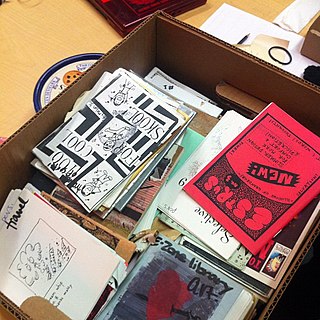The Gopher protocol is a communication protocol designed for distributing, searching, and retrieving documents in Internet Protocol networks. The design of the Gopher protocol and user interface is menu-driven, and presented an alternative to the World Wide Web in its early stages, but ultimately fell into disfavor, yielding to HTTP. The Gopher ecosystem is often regarded as the effective predecessor of the World Wide Web.

The University of California, Berkeley, is a public land-grant research university in Berkeley, California. It was established in 1868 and is the state's first land-grant university and the founding campus of the University of California system. Berkeley is one of the top universities in the world with the most top-ranked departments nationally. It is also one of the leading universities worldwide in producing entrepreneurs and attracting funding for start-up companies with Berkeley undergraduate alumni having founded more companies than any other university.

A website is a collection of web pages and related content that is identified by a common domain name and published on at least one web server. Websites are typically dedicated to a particular topic or purpose, such as news, education, commerce, entertainment or social networking. Hyperlinking between web pages guides the navigation of the site, which often starts with a home page. As of May 2023, the top 5 most visited websites are Google Search, YouTube, Facebook, Twitter, and Instagram.

A zine is a small-circulation self-published work of original or appropriated texts and images, usually reproduced via a copy machine. Zines are the product of either a single person or of a very small group, and are popularly photocopied into physical prints for circulation. A fanzine is a non-professional and non-official publication produced by enthusiasts of a particular cultural phenomenon for the pleasure of others who share their interest. The term was coined in an October 1940 science fiction fanzine by Russ Chauvenet and popularized within science fiction fandom, entering the Oxford English Dictionary in 1949.
Maximumrocknroll, often written as Maximum Rocknroll and usually abbreviated as MRR, is a not-for-profit monthly online zine of punk subculture and radio show of punk music. Based in San Francisco, MRR focuses on punk rock and hardcore music, and primarily features artist interviews and music reviews. Op/ed columns and news roundups are regular features as well, including submissions from international contributors. By 1990, it "had become the de facto bible of the scene". MRR is considered to be one of the most important zines in punk, not only because of its wide-ranging coverage, but because it has been a consistent and influential presence in the ever-changing punk community for over three decades. From 1992 to 2011, it published a guide called Book Your Own Fuckin' Life.
Internet censorship in Tunisia significantly decreased in January 2011, following the ouster of President Zine El Abidine Ben Ali, as the new acting government removed filters on social networking sites such as YouTube.
Punk Planet was a 16,000 print run punk zine, based in Chicago, Illinois, that focused most of its energy on looking at punk subculture rather than punk as simply another genre of music to which teenagers listen. In addition to covering music, Punk Planet also covered visual arts and a wide variety of progressive issues — including media criticism, feminism, and labor issues.

Marxists Internet Archive is a non-profit online encyclopedia that hosts a multilingual library of the works of communist, anarchist, and socialist writers, such as Karl Marx, Friedrich Engels, Vladimir Lenin, Leon Trotsky, Joseph Stalin, Mao Zedong, Rosa Luxemburg, Mikhail Bakunin, Peter Kropotkin and Pierre-Joseph Proudhon, as well as that of writers of related ideologies, and even unrelated ones. The collection is maintained by volunteers and is based on a collection of documents that were distributed by email and newsgroups, later collected into a single gopher site in 1993. It contains over 180,000 documents from over 850 authors in 80 languages. All material in the archive is provided free of charge to users, though not necessarily free of copyright.
The Global Network Navigator (GNN) was the first commercial web publication and the first web site to offer clickable advertisements. GNN was launched in May 1993, as a project of the technical publishing company O'Reilly Media, then known as O'Reilly & Associates. In June 1995, GNN was sold to AOL, which continued its editorial functions while converting it to a dial-up Internet Service Provider. AOL closed GNN in December 1996, moving all GNN subscribers to the AOL dial-up service.

The William Lynch speech, also known as the Willie Lynch letter, is an address purportedly delivered by a William Lynch to an audience on the bank of the James River in Virginia in 1712 regarding control of slaves within the colony. In recent years, it has been widely exposed as a hoax.

David S. Touretzky is a research professor in the Computer Science Department and the Center for the Neural Basis of Cognition at Carnegie Mellon University. He received a BA in Computer Science at Rutgers University in 1978, and earned a master's degree and a Ph.D. (1984) in Computer Science at Carnegie Mellon University. Touretzky has worked as an Internet activist in favor of freedom of speech, especially what he perceives as abuse of the legal system by government and private authorities. He is a notable critic of Scientology.

A search engine is a software system that finds web pages that match a web search. They search the World Wide Web in a systematic way for particular information specified in a textual web search query. The search results are generally presented in a line of results, often referred to as search engine results pages (SERPs). The information may be a mix of hyperlinks to web pages, images, videos, infographics, articles, and other types of files. Some search engines also mine data available in databases or open directories. Unlike web directories and social bookmarking sites, which are maintained by human editors, search engines also maintain real-time information by running an algorithm on a web crawler. Any internet-based content that cannot be indexed and searched by a web search engine falls under the category of deep web. Modern search engines are based on techniques and methods developed in the field of Information retrieval.

The World Wide Web is a global information medium which users can access via computers connected to the Internet. The term is often mistakenly used as a synonym for the Internet, but the Web is a service that operates over the Internet, just as email and Usenet do. The history of the Internet and the history of hypertext date back significantly further than that of the World Wide Web.

Eric Paulos is an American computer scientist, artist, and inventor, best known for his early work on internet robotic teleoperation and is considered a founder of the field of Urban Computing, coining the term "urban computing" in 2004. His current work is in the areas of emancipation fabrication, cosmetic computing, citizen science, New Making Renaissance, Critical Making, Robotics, DIY Biology, DIY culture, Micro-volunteering, and the cultural critique of such technologies through New Media strategies.

The EServer was an open access electronic publishing cooperative, founded in 1990, which published writings in the arts and humanities free of charge to Internet readers. In 2006, it was rated by Alexa as the most popular arts and humanities website in the world.
Hinduism Today is a quarterly magazine published by the Himalayan Academy, a nonprofit educational institution, in Kapaʻa, Hawaiʻi, USA. It is distributed throughout the United States and internationally, currently in 60 nations. Founded by Sivaya Subramuniyaswami in 1979, it is a public service of his monastic order to promote an understanding of the Hindu faith, culture, and traditions.

Preston is My Paris Publishing (PPP) is a photography-based project that creates publications, site-specific installations, live events, digital applications, education, writing, talks and workshops. It was started in 2009 by Adam Murray and Robert Parkinson as a photocopied zine with the intention of encouraging the exploration of Preston as a subject for creative practice and to focus more attention on the city. It has been described as "politically and photographically aware", "photographing and publishing a view of a disregarded, ordinary Britain" "in a playful way".

Treyf is a politically left-wing Jewish podcast hosted by Sam Bick and David Zinman. According to their website, "Treyf is an anarchist Jewish podcast recorded in occupied Tio'tia:ke (Montreal). The show features discussions about politics and history from a leftist Jewish perspective."
The New Women's Survival Catalog is a 1973 book, the collective outcome of an influential survey of second-wave feminist network activities across the United States. It was assembled in five months by Kirsten Grimstad and Susan Rennie. The book was promoted as a "feminist Whole Earth Catalog", referring to Stewart Brand's famous 1968–1972 counterculture magazine. The book was reissued by art book publisher Primary Information in September 2019.











